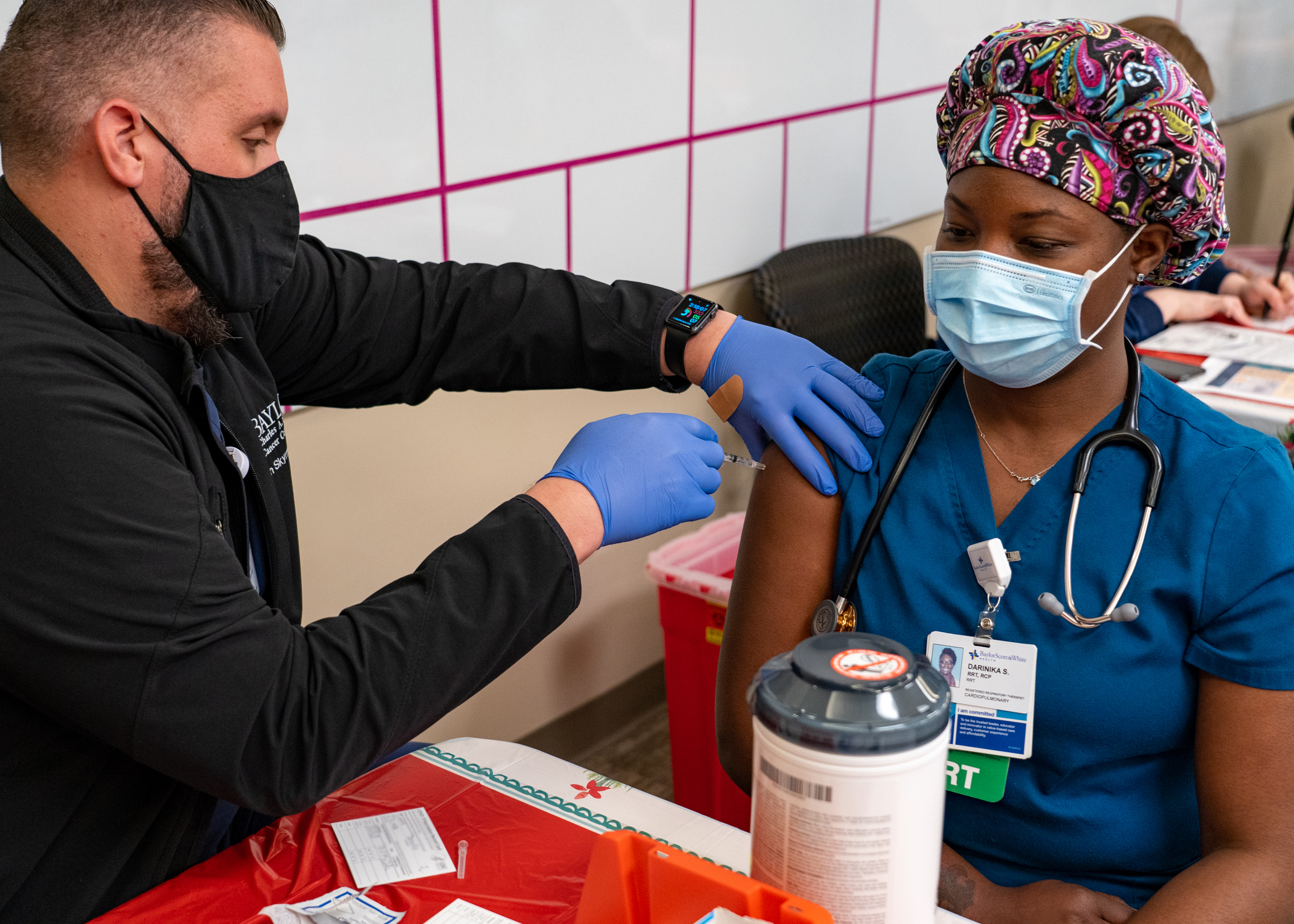A publicly traded oil company with rigs throughout West Texas has 2,000 workers spread between 42 sites. The workers often work, eat, and sleep together in tight quarters. Earlier this summer, the company recorded 23 COVID-19 infections in three days, requiring 60 employees to go home and quarantine. Because of the nature of their job, they can’t work remotely. “We can’t live like this,” the CEO told Dr. Scott Conard. “We can’t have our operations cease because people are not willing to get a vaccine.”
The delta variant coupled with a normally functioning society has put business leaders in a difficult decision. In response, those executives are reframing the vaccine debate as a safety discussion and not a social or political one, says Conard, the chief medical officer for the insurance brokerage Holmes Murphy. President Joe Biden’s new ultimatum requires companies with 100 or more employees to mandate vaccines or test for the virus each week. It has re-politicized the issue and left business leaders between a rock and a hard place.
The oil company, which Conard advises, has a challenging situation. The workers have to be in person, and the number and geography of the company add hurdles. Suppose tests cost $100 each, and a nurse or medical assistant needs to administer the shot. With weekly testing of every employee in all locations, the requirements would change the company’s financial viability.
Right now, Biden’s new rules beg a few questions. First, will all workers need to be vaccinated or tested, or just the ones on-site? Second, if these rules mandate tens of millions of tests every week, can the production of tests keep up with the demand? Which tests are acceptable? Rapid tests are more practical but more likely to result in a false negative. PCR tests are more reliable but not practical to protect other employees at the moment. Lastly, who is going to pay for these tests? The government, company, or maybe the individual?
Human resources professionals are already fatigued from the past 18 months of the pandemic. In addition, they now have to deal with a federal policy that will cause more division and conflict within their organizations. So what is the best way to move forward with what is best for the company without alienating your workforce?
The delta variant has changed the calculus employers have to make to keep their businesses running. “We are discovering that the strategy to keep a safe work environment for all employees requires them to act and is becoming more direct and invasive,” he says.
At a construction site, workers must wear hard hats and steel-toed boots because the data say those precautions will decrease injuries, so it is worth it to companies to enforce the rule. Likewise, companies should treat COVID-19 the same way, Conard says. So what does the data say about vaccinated employees?
Over the last year, one in 12 unprotected individuals that get COVID-19 end up in the hospital, and one in 60 dies. For those who are vaccinated, one in 250 people are hospitalized, and one in 1,250 people die. Vaccinated individuals are about as likely to be hospitalized or die from COVID-19 as individuals are from the flu each year. Society doesn’t shut down because of the flu threat, so in theory, a mostly vaccinated public means a normally functioning society.
“There are two diseases going on in the United States right now,” Conard says, in dividing the impact of COVID-19 on two groups. “You’ve got the protected population and the unprotected population.”
Business leaders need to focus on this data when making their pitch to employees to get vaccinated. Now that the Pfizer vaccine has full FDA approval, Conard says that many CEOs were making a move to mandate the vaccine (like Texas Instruments in Dallas), but the Biden rule has complicated things. Because the mandate comes from a political figure rather than the CEO, the workplace safety angle can be more challenging to establish.
Finding the balance between individual freedom and collective protection is never easy. But Conard says that if leaders can stick to the data and frame the vaccine as a workplace safety issue (like closed-toe shoes or a hard hat), they can move the needle. “More CEOs are leaning into requiring immunization as a result of the safety conversation. It takes it out of the political, social, and religious conversation and puts it into a safety conversation, which is much more tolerable,” Conard says. “The shift in mindset that is occurring in corporations is decreasing the emotional aspect of the conversation and making it more black and white. Is this what’s safest for our employees? The data is there, so they’re leaning into it.”




